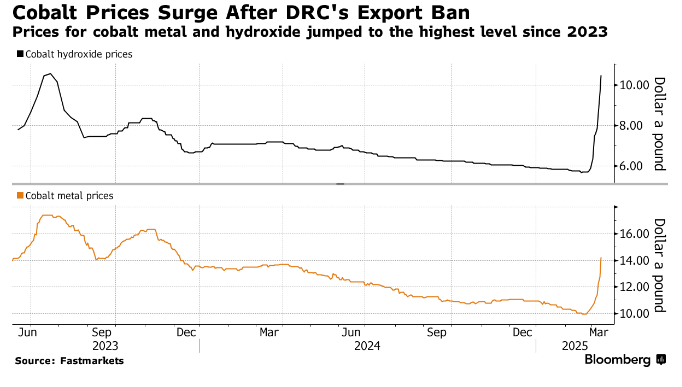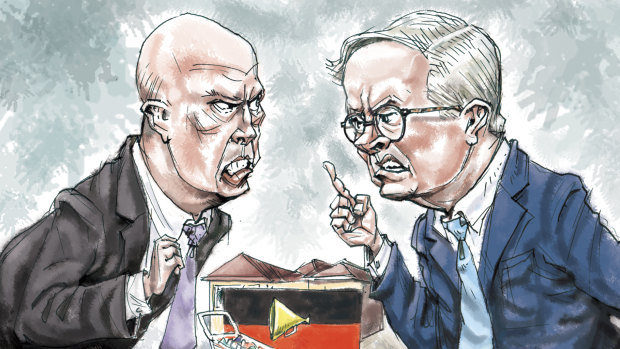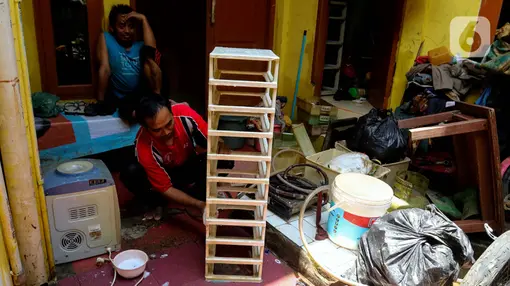DRC Cobalt Export Ban: How The New Quota System Will Shape The Market

Table of Contents
Understanding the DRC Cobalt Export Quota System
The DRC's new cobalt export quota system aims to regulate the flow of cobalt leaving the country, ostensibly to improve transparency and control within the mining sector. While the specifics are still evolving, the system involves allocating export quotas to various mining companies and exporters based on a complex set of criteria. These criteria are not yet fully transparent, leading to uncertainty and speculation within the market. The timeline for full implementation is also subject to change, adding further complexity.
-
Quota Allocation Mechanisms: The exact formula for allocating quotas remains partially undisclosed. However, factors such as production capacity, environmental compliance, and adherence to labor standards are expected to play a significant role. Information released suggests a tiered approach, favoring larger, more formalized operations.
-
Exemptions and Exceptions: While details are scarce, there might be exemptions for smaller, artisanal miners or those involved in specific downstream processing activities. The clarity of these exceptions remains a key area of concern.
-
Governmental Oversight: The Ministry of Mines is the primary government body responsible for implementing and overseeing the quota system. However, collaboration with other agencies and international organizations is likely. The level of transparency and accountability in this process remains to be seen.
Impact on Global Cobalt Supply Chains
The DRC's new cobalt export quota system poses a significant threat to the stability of global cobalt supply chains. Electric vehicle (EV) battery manufacturers, technology companies reliant on cobalt for their products, and numerous downstream industries are heavily dependent on DRC cobalt. The quota system introduces an element of unpredictability, potentially leading to supply shortages and increased costs.
-
Industry Reliance: The EV battery industry is particularly vulnerable, as cobalt is a crucial component of lithium-ion batteries. Any disruption to cobalt supply can directly impact EV production and the broader transition to electric mobility.
-
Supply Chain Diversification: The quota system is incentivizing companies to diversify their cobalt sourcing. This involves exploring alternative sources like Australia, Canada, and Zambia, though the viability and scale of these alternatives remain debatable.
-
Alternative Cobalt Sources: While alternative sources exist, they currently cannot fully compensate for the DRC's dominant position in the global cobalt market. This geographical concentration makes the DRC's policies highly influential.
Price Volatility and Market Fluctuations
The introduction of the DRC cobalt export quota system is expected to trigger significant price volatility in the cobalt market. While some predict a substantial price increase due to potential supply constraints, others argue that the quota system could lead to more stable, albeit higher, prices in the long term. The actual outcome will depend on a complex interplay of factors.
-
Supply and Demand Dynamics: The primary driver of price fluctuations will be the balance between cobalt supply (constrained by the quota system) and global demand (particularly from the growing EV sector).
-
Market Sentiment and Speculation: Uncertainty surrounding the quota system has already led to speculation and price swings. Market participants are carefully monitoring developments and adjusting their strategies accordingly.
-
Price Hedging Strategies: Businesses involved in the cobalt market are increasingly adopting price hedging strategies to mitigate the risk associated with price volatility. This includes using futures contracts and other financial instruments to secure future supplies at predetermined prices.
Ethical and Environmental Concerns
The DRC cobalt export quota system raises significant ethical and environmental concerns. The quota system's impact on artisanal miners, who represent a substantial portion of DRC cobalt production, is a particular area of worry. The environmental consequences of cobalt mining, such as deforestation and water pollution, also warrant attention.
-
Artisanal Miners' Livelihoods: The quota system could negatively impact the livelihoods of thousands of artisanal miners, many of whom operate informally and lack access to formal markets. Supporting and integrating these miners into a more regulated and ethical system is crucial.
-
Environmental Regulations and Sustainability: Stringent environmental regulations are needed to mitigate the environmental damage associated with cobalt mining. The quota system should incorporate environmental compliance as a key criterion for quota allocation.
-
Promoting Responsible Mining Practices: Improving ethical and environmental practices requires collaboration between the DRC government, mining companies, civil society organizations, and international stakeholders. Initiatives promoting responsible sourcing and fair labor practices are essential.
Conclusion
The DRC cobalt export ban and its new quota system represent a significant turning point in the global cobalt market. Understanding its nuances, its repercussions on supply chains, and its influence on prices is critical for businesses and stakeholders. This policy shift presents both challenges and opportunities, demanding careful consideration of ethical and environmental factors alongside economic impacts. Continuous monitoring of the DRC cobalt export quota system and its evolving effects is crucial for navigating this dynamic market effectively. Stay informed on the latest developments surrounding the DRC cobalt export ban, its impact on DRC cobalt production, and evolving cobalt export regulations to successfully manage risk and leverage emerging opportunities in this vital industry.

Featured Posts
-
 Albanese Vs Dutton A Close Look At Their Key Policy Pitches
May 15, 2025
Albanese Vs Dutton A Close Look At Their Key Policy Pitches
May 15, 2025 -
 Ere Zilveren Nipkowschijf Voor Jiskefet Een Verdiende Eer
May 15, 2025
Ere Zilveren Nipkowschijf Voor Jiskefet Een Verdiende Eer
May 15, 2025 -
 Giant Sea Wall Kondisi Terkini Dan Penjelasan Menko Ahy
May 15, 2025
Giant Sea Wall Kondisi Terkini Dan Penjelasan Menko Ahy
May 15, 2025 -
 Eau Du Robinet Polluee Solutions De Filtration Efficaces
May 15, 2025
Eau Du Robinet Polluee Solutions De Filtration Efficaces
May 15, 2025 -
 Chanels Impact On Tylas Fashion Evolution
May 15, 2025
Chanels Impact On Tylas Fashion Evolution
May 15, 2025
